Remain voters far more supportive of same-sex marriage in Northern Ireland than Leavers
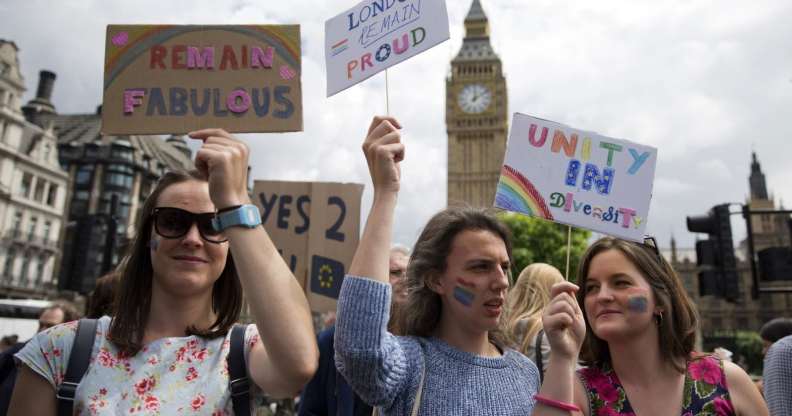
Remain activists make their views clear (JUSTIN TALLIS/AFP/Getty)
People who voted to remain in the European Union are significantly more supportive of same-sex marriage being legalised in Northern Ireland than those who wanted to leave, new polling by PinkNews has revealed.
Northern Ireland is the only part of the UK – and western Europe, for that matter – which hasn’t instituted equal marriage, largely due to opposition from the ultra-conservative Democratic Unionist Party.
The DUP – which is currently propping up the Conservative Government, despite many of its top figures having made anti-gay comments – has stalled all progress on equal marriage in Northern Ireland.
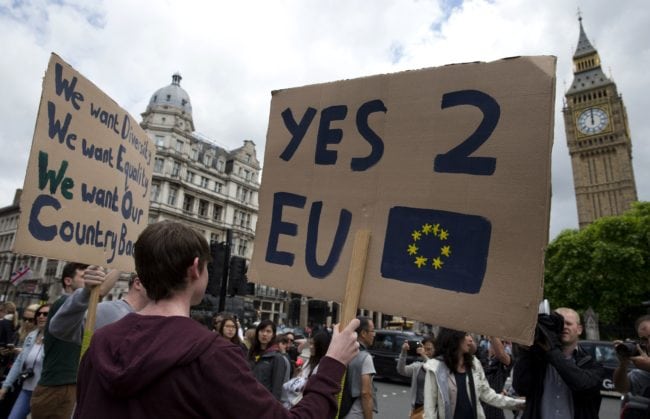
A pro-EU demonstrator holds a placard during a protest (JUSTIN TALLIS/AFP/Getty)
The party has even reportedly stated that a same-sex marriage ban is their ‘red line’ in the country’s ongoing power-sharing negotiations.
Remain and Leave voters both stand opposed to the DUP’s position, with PinkNews’ polling – which was conducted ahead of the PinkNews summer reception in Belfast, supported by Citi, on June 28 – showing clear majorities in support of equal marriage on both sides.
But the difference between the two is striking, as an overwhelming 90 percent of Remainers support same-sex marriage, as opposed to 68 percent in the Leave category.
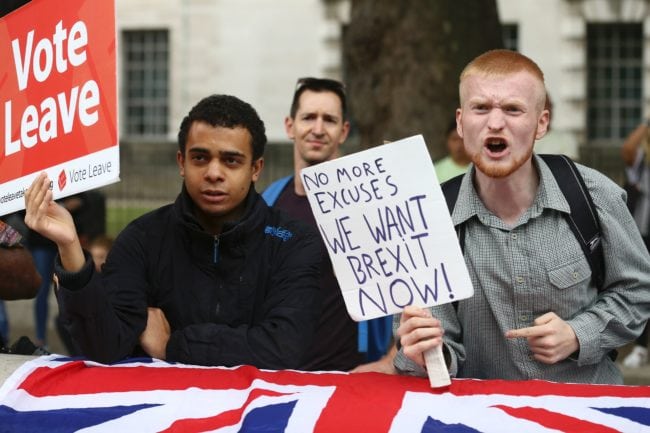
Leave activists (JUSTIN TALLIS/AFP/Getty)
This represents the biggest gap between two equivalent categories in the poll, apart from the 24 percentage points which separate people aged 18-24 and those who are more than 65 years old.
The results show that while a mere one in ten Remainers oppose marriage equality, one-third of Leave voters do so.
It was revealed this week that DUP leader Arlene Foster will speak to members of the LGBT community at PinkNews’ Belfast event.
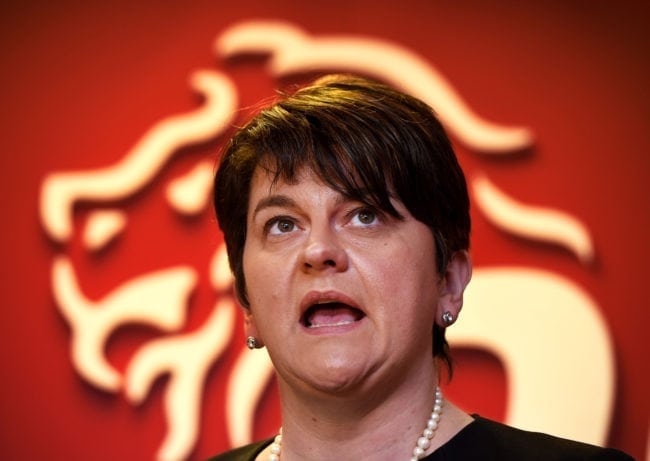
DUP leader Arlene Foster (Charles McQuillan/Getty)
Arlene Foster MLA, who took over as DUP leader in 2015, will attempt to improve the party’s relationship with the region’s LGBT community at the parliamentary summer reception at Stormont.
All party leaders in Northern Ireland were invited to meet with and address LGBT activists at the event.
The DUP leader confirmed on June 18 that she would accept the invitation to the reception in a move that surprised many LGBT activists.
Foster will be joined by Michelle O’Neill MLA, leader of Sinn Féin in Northern Ireland, Robin Swann MLA, leader of the Ulster Unionist Party, Colum Eastwood MLA, leader of the SDLP and Naomi Long MLA, leader of the Alliance Party.
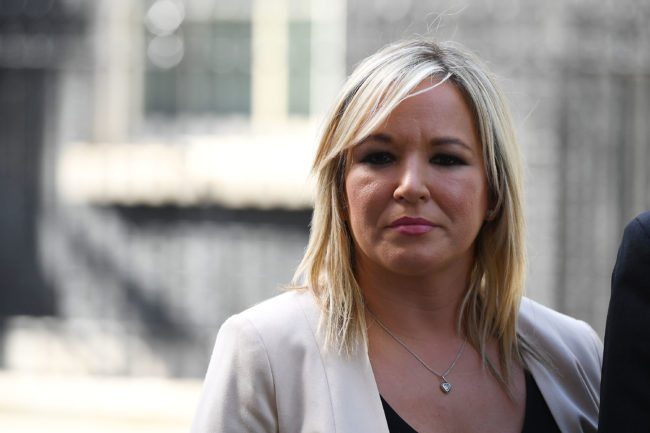
Michelle O’Neill, leader of Sinn Féin (Chris J Ratcliffe/Getty)
Foster set out her plans in a speech to the DUP executive last week. It will be the first time a DUP leader has addressed an LGBT event.
She said: “[We must] re-engage and re-energise our people, and yes, we must take our message to places that perhaps may not be traditional to our cause.
“I want to genuinely reach out to our minority communities and show them the hand of friendship, recognising they have made Northern Ireland their home.”
She emphasised, however, that the party would not be shifting from its position on same-sex marriage.
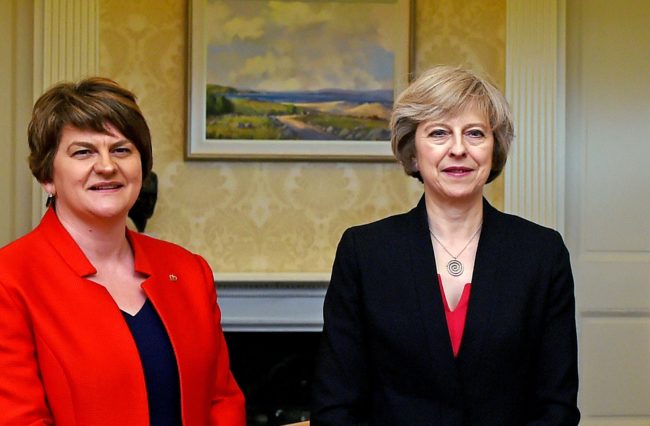
Prime Minister Theresa May meets DUP leader Arlene Foster (Charles McQuillan/WPA Pool /Getty)
“I believe I can hold to my principled position, particularly in reality to the definition of marriage, while respecting the diversity across our society and recognising that sexuality is a matter for the individual,” Foster said.
“All I ask in return is that my, and our views, are also respected and not the subject of the vilest of abuse as has sometimes been the case by a small minority.
“Just because we disagree on marriage does not mean that I can’t say that we value those who are LGBT in our society, and they should not be the subject of hate because of their sexuality.”

